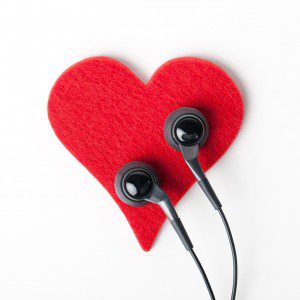
(Image via Pixabay.)
It seems I can’t shut up today. The article everyone is noticing is about a mess, but I kind of like the one about fox news better. But I just read an excellent article (“Bad science misled millions with chronic fatigue syndrome. Here’s how we fought back” by Julie Rehmeyer over at Statnews.com) and now I am writing to you again. While I heartily recommend the article, what I want to talk with you about are two things it touches on but only indirectly addresses: first, the understanding and sympathy that those of us who do not suffer from chronic illnesses such as CFS should offer those who do suffer them; and second, the way compromised research results can hurt people and become a social justice concern. (While I prefer “compromised research” for the rest of this piece I will use the more common idiom, “bad science”.) Either one of these topics would make the article worth your time, as do its direct arguments.
(NB: Sometimes, if a topic is touched by controversy, there is an immediate outcry that the site an article appears on makes the article’s claims invalid. As I am not generally familiar with this site, nor its reputation and content, I want to explain how I generally react to such claims, just in case they arise here. While some sites earn their poor reputations, more important than where an article appears is how it argues- i.e. what claims it makes, what evidence it appeals to and how it links the two. As a non-professional in all matters medical and scientific, this is the litmus I rely on when reading scientific articles. This article is carefully argued and makes no claims it does not directly link back to their evidence- which means it meets the criteria I believe non-specialist readers, such as myself and likely many of you, should be using to evaluate science articles. I apologize if this digression is unwarranted.)
Regular readers will be familiar with Mary’s mentions of her chronic illness (see especially here and here). Here I am writing not about the experience of chronic illness, but about the bystander’s viewpoint. The biggest thing to understand is that you can never assume you understand. Being beside someone who is suffering requires listening, patience, and above all, “Be attentive!” If you do not, you will never achieve wisdom, and you will miss Christ present in your neighbor and begging to be present to others through you. More specifically, I found in Ms. Rehmeyer’s article a description of an experience Mary has had, that I have struggled over and over to make intelligible to others without ever feeling I had done a good job of it. Rehmeyer writes:
“But patients like me were immediately skeptical, because the results contradicted the fundamental experience of our illness: The hallmark of ME/CFS is that even mild exertion can increase all the other symptoms of the disease, including not just profound fatigue but also cognitive deficits, difficulties with blood pressure regulation, unrestorative sleep, and neurological and immune dysfunction, among others.
Soon after I was diagnosed in 2006, I figured out that I had to rest the moment I thought, “I’m a little tired.” Otherwise, I would likely be semi-paralyzed and barely able to walk the next day.
The researchers argued that patients like me, who felt sicker after exercise, simply hadn’t built their activity up carefully enough. Start low, build slowly but steadily, and get professional guidance, they advised. But I’d seen how swimming for five minutes could sometimes leave me bedbound, even if I’d swum for 10 minutes without difficulty the day before. Instead of trying to continually increase my exercise, I’d learned to focus on staying within my ever-changing limits — an approach the researchers said was all wrong.”
This sheer, mind-ravaging unpredictability never seems to make sense to people. They expect Mary to either be sick and need me for a house-husband or not to be sick. It seems hard for many to understand that much of our lives are ruled by learning to get better at sensing the rhythms of her illness and how to compensate for them. (We are very grateful for the prayers and “support the author’s family” donations we have received as we try to improve our lot while managing this see-saw ride. Thank you.)
Now about bad science. . .













